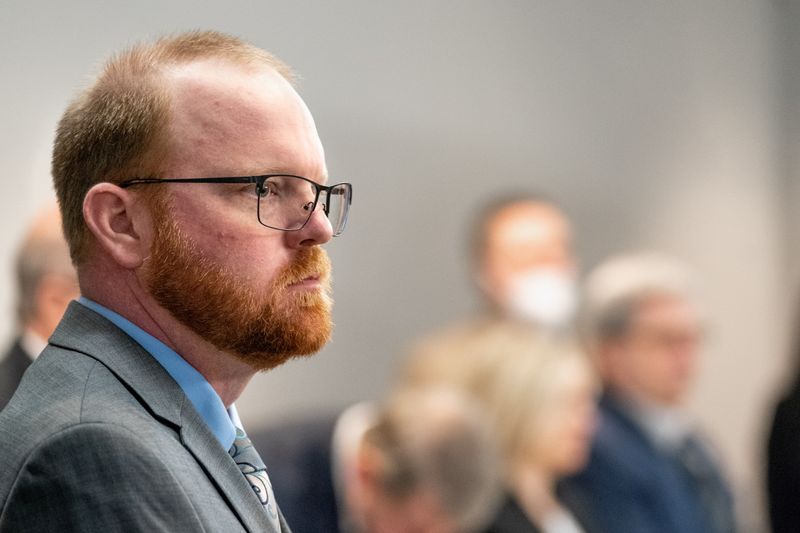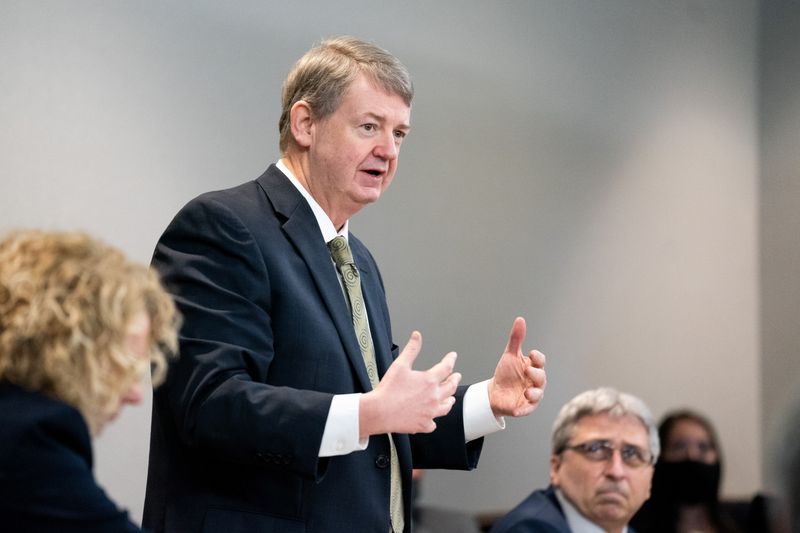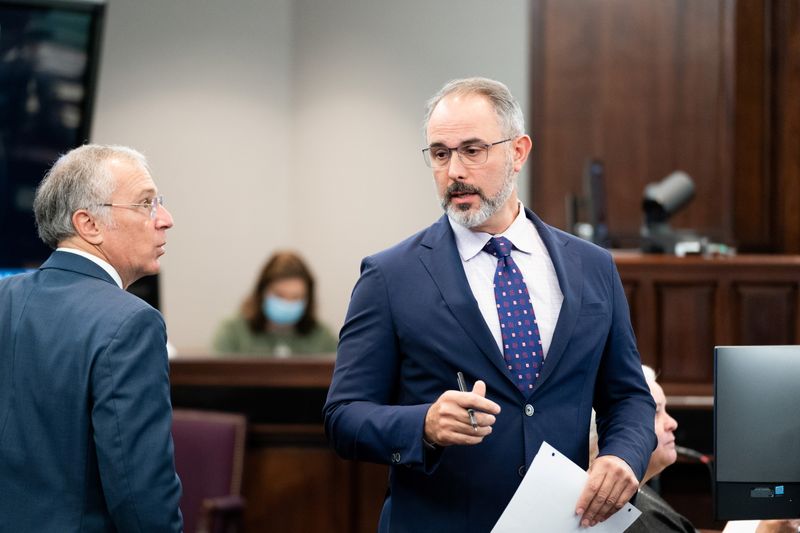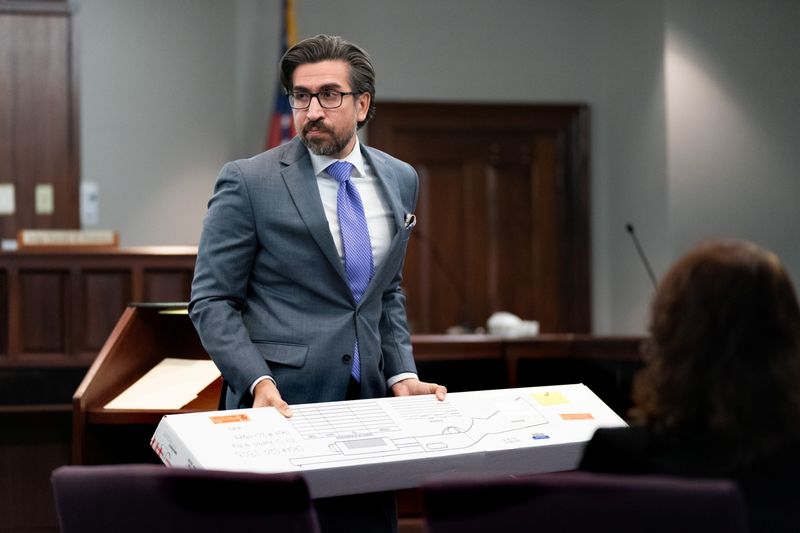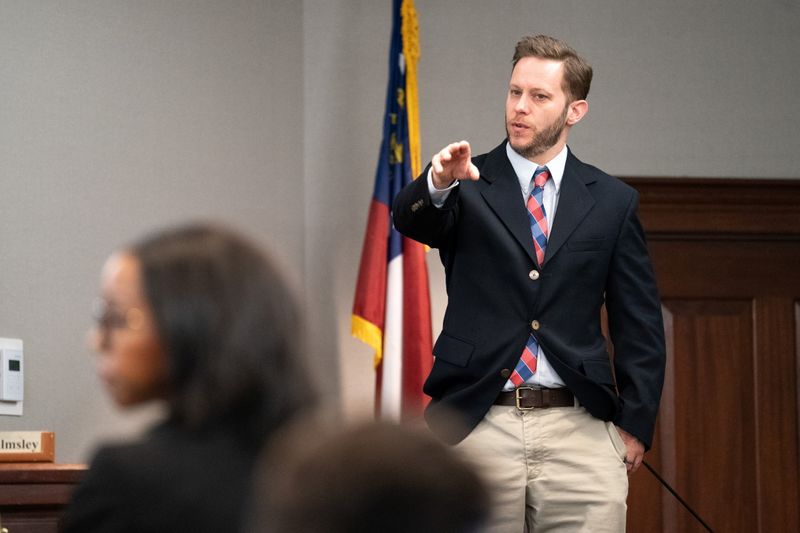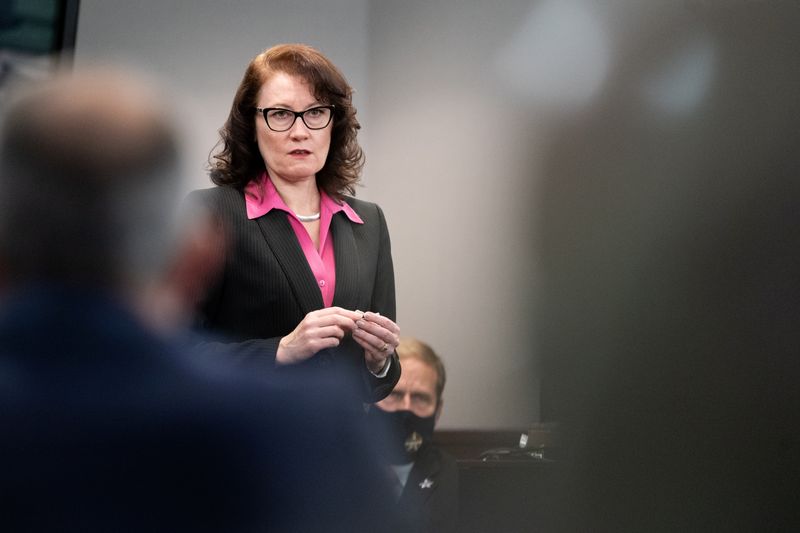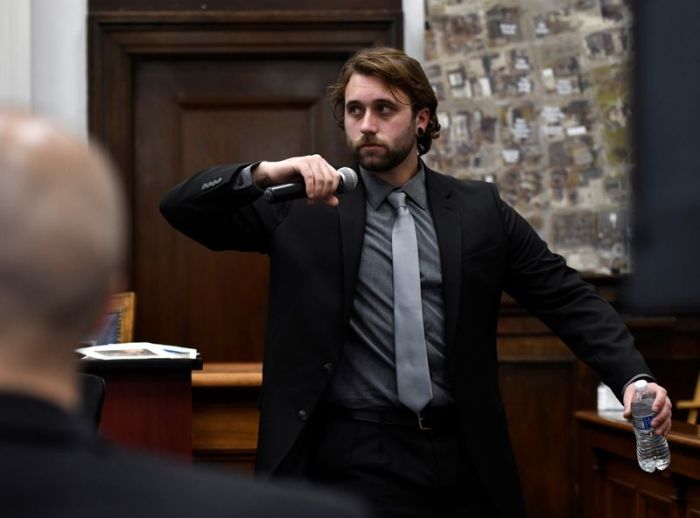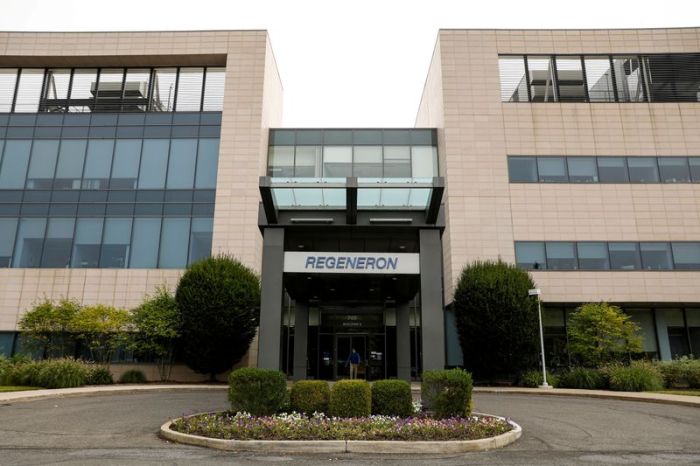BRUNSWICK, Ga. (Reuters) -One of the three white men in pickup trucks who pursued Ahmaud Arbery through their southern Georgia neighborhood told police the Black jogger appeared tired from the chase before he was shot dead, a jury heard on Monday at the men’s trial.
Police body-worn camera footage of the first moments following Arbery’s killing was played, giving jurors a glimpse of the demeanor of defendants Gregory McMichael, 65; his son Travis McMichael, 35; and their neighbor William “Roddie” Bryan, 52.
“You had no choice,” Gregory McMichael could be heard telling his son, hands on his shoulders, as the first police officer on the scene walked over. Arbery’s body lay in a pool of blood in the middle of the road a few steps away.
Jurors were also shown graphic police photographs showing close-ups of large gaping shotgun wounds in the center of Arbery’s chest, below his left armpit and in one of his wrists.
The three men have pleaded not guilty in Glynn County Superior Court to charges of murder, aggravated assault and false imprisonment. They face life in prison if convicted on the most serious charge by the jury, which is composed of 11 white people and one Black person.
The men say they thought Arbery might have been fleeing from a crime when he ran through Satilla Shores, a quiet cluster of family homes outside the small coastal city of Brunswick, on a Sunday afternoon in February 2020.
Prosecutors say they had unfairly assumed the worst about a 25-year-old Black man out for a Sunday run.
The men pursued Arbery in pickup trucks for several minutes before the younger McMichael opened fire with his shotgun as Arbery ran toward him and appeared to reach for the weapon.
Larissa Ollivierre, a prosecutor from the Cobb County District Attorney’s Office, sought to undermine the defense argument that the men were trying to detain Arbery under a citizen’s arrest law, which requires a person to have reasonable suspicion that a felony has just been committed.
Bryan told county police officer Ricky Minshew, the first officer to arrive at the shooting, that he never heard a word from Arbery, but he heard one of the McMichaels call out to Arbery: “What’d you steal? What’d you do?”
“Did he ever say that he told Ahmaud he was under arrest for anything?” Ollivierre asked Minshew.
“No, ma’am,” Minshew said.
Later, Bryan’s lawyer, Kevin Gough, asked Minshew about Bryan’s reason for pulling out his cellphone to record the shooting.
“Well, I thought he was going to get away,” Bryan told Minshew at the scene, “so that was the reason.”
‘SUSPICIOUS BLACK MALE’
Minshew said he was checking out a report of a “suspicious Black male” in a white T-shirt in Satilla Shores when he heard gunshots as he drove into the neighborhood. He found the McMichaels and Bryan “pacing” near Arbery’s body.
Bryan told the officer that he recognized neither Arbery when he ran by Bryan’s driveway, nor the McMichaels as they drove by in pursuit in their pickup truck, Minshew testified.
“He said he hollered at the truck: ‘Y’all got him?'” before jumping in his own truck to join the chase, Minshew said, referring to a transcript of the body-camera video.
“Should I have been chasing him? I don’t know,” Bryan told Minshew minutes after the shooting, a few steps away from Arbery’s body in the road. Bryan noted he never put on his seatbelt, and could have been “thrown through the damn windshield trying to chase this joker,” according to the transcript.
Bryan noticed Arbery stop to catch his breath.
“When I rounded the corner out there, it was almost like the Black guy was tired of running,” Bryan told Minshew. Bryan also told the officer that Arbery tried to open his truck door at one point.
(Reporting by Jonathan Allen and Rich McKay; Editing by Ross Colvin and Peter Cooney)

